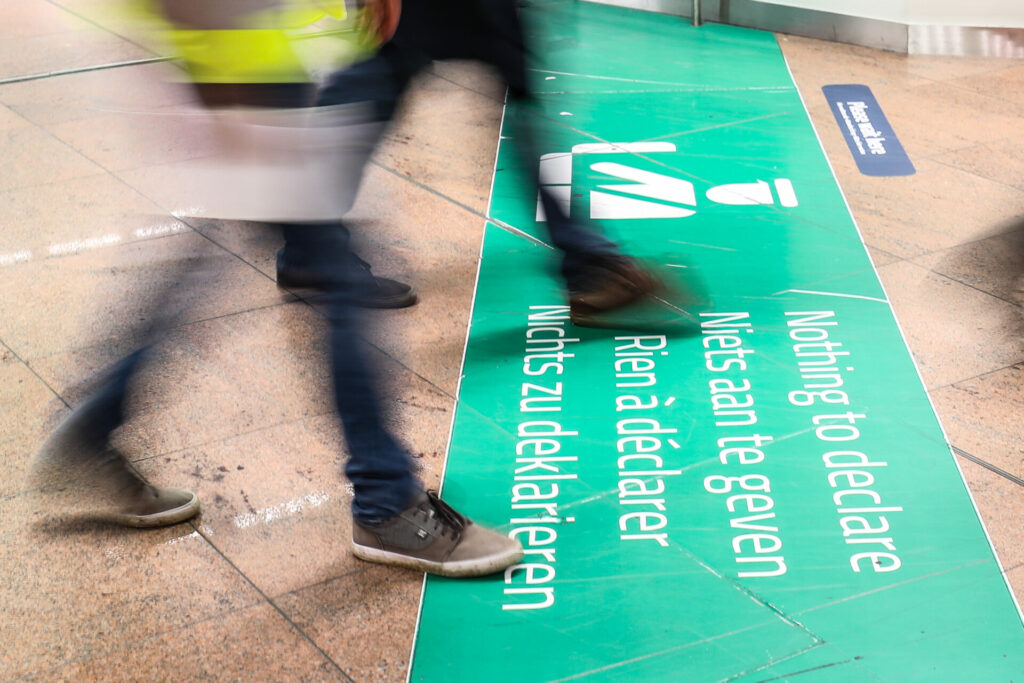The Schengen Border Code will be updated as the Belgian Presidency of the Council of the EU and negotiators from the European Parliament have reached a provisional agreement on the adjustment of the border rules, announced Interior Minister Annelies Verlinden (CD&V).
The update clarifies the rules on (re)introducing border controls between the 27 European countries who are part of the Schengen area, and ensures that they remain "a last resort," Verlinden's office said in a press release.
"Smooth movement across our internal borders and the security of our external borders are the two cornerstones of the Schengen area," she said. "This agreement on the revision of the Schengen Borders Code will clarify and strengthen these two pillars."
The Schengen Borders Code provides for the absence of internal border controls in the Schengen area, which in principle allows over 420 million people to travel freely between the Member States. From 31 March 2024, Bulgaria and Romania will also become part of the area.
Introducing border controls
In recent years, discussions about updating the border rules of the area flared up several times, as a result of the debate around migration but also due to travel restrictions during the Covid-19 pandemic.
The amended Schengen Borders Code will provide Member States with new opportunities to effectively manage the EU's external borders in a situation where migrants are used for political gain. "This includes limiting the number of border crossing points or shortening their opening hours."
In practice, this means that the deal would allow internal checks and increased policing in situations of so-called "instrumentalisation of migration," which is when a Member State claims that a non-EU country or 'hostile non-state actor' is pushing migrants towards external EU borders for political reasons.
"This is an extremely problematic concept, whose codification into EU law would introduce broad derogations to fundamental rights, including the right to asylum and freedom of movement," said PICUM, a Brussels-based network of over 160 NGOs working to advance the rights of undocumented people. They added that the new deal would de facto legitimise racial profiling in border checks.

Credit: Belga
While the reform of the Schengen Borders Code aims to reduce the amount of temporary generalised internal EU border checks, PICUM stressed that it would escalate checks on specific groups of people. The deal would allow police authorities in joint patrols to carry out "random" document checks near internal EU borders, under the guise of apprehending people without valid travel or residence documents.
Research has already shown that police tend to stop people for checks based on racial, ethnic, or religious characteristics. It is clear that these checks will depend on the police’s decisions about who "looks like" a person without valid papers, the network said.
"This agreement embraces a very harmful narrative which assumes that people crossing borders without valid documents are a threat to the EU and proposes to address it by increasing policing, while de facto encouraging racial profiling," said Silvia Carta, Advocacy Officer at PICUM.
Internal pushbacks, no safeguards
The new code also introduces "alternative measures" to counter unauthorised movements of third-country nationals staying in the Schengen area. If they are apprehended in the border area, a new procedure will allow Member States to return them to the Member State from which they arrived directly. The arrest must take place in the context of a bilateral partnership, the deal states.
However, PICUM stressed that this would legalise the violent practice of "internal pushbacks," which consists of apprehending and detaining people caught without a valid document near an internal border, and transferring them to the Member State the police think the person came from without conducting an individual assessment.
It is still unclear which "safeguards" have been introduced to protect children, who are not explicitly excluded from such transfer procedures.
The deal would most likely also escalate the use of monitoring and surveillance technologies that do not apply relevant safeguards and would be at odds with existing EU data protection legislation and fundamental rights.
If there is a serious threat to public order or internal security, the deal will also allow Member States to exceptionally (re)introduce border controls. However, this will only be possible after assessing "the necessity and proportionality" of this reintroduction, and ensuring that other measures are not sufficient.
Controls will be able to be introduced immediately if threats to public order or security are unpredictable. In that case, the Commission, Member States and the European Parliament are required to be informed at the same time. "These controls may then be reintroduced for a period of up to one month and extended for up to three months."
Internal border controls for foreseeable threats – which have been communicated to the Commission, other Member States and the European Parliament before being reintroduced – can remain in force for a maximum of six months. They can be extended for a renewable period of up to six months, with a maximum duration of two years.
In serious exceptional situations relating to a persistent threat, internal border controls may be extended after two years for a maximum of six more months, which may then be extended once more (total duration of one year).
Another health crisis
In the event of another large-scale public health emergency, the Council can decide to authorise temporary travel restrictions at the EU's external border. The decision may also include health-related travel restrictions, such as testing, quarantine and self-isolation. During the Covid-19 pandemic, the EU could only make non-binding recommendations to Member States.
Certain categories of people – those enjoying the right of free movement, long-term residents and people enjoying international protection – will be exempted from the entry restrictions.
Now, this provisional agreement will be submitted to the representatives of the Member States in the Council for confirmation. After that, it must still be formally adopted by both institutions.

